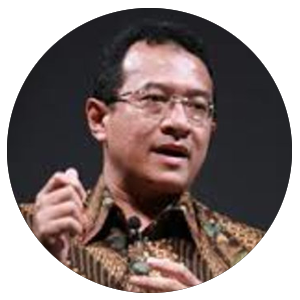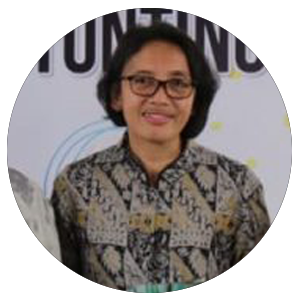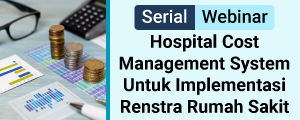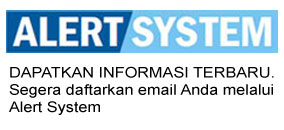Webinar
Stunting Intervention in Indonesia: Leaving no child behind by 2030, Can We ?
In the Context of COVID-19 Pandemic
Community of Practice for Health Equity
June 18, 2020
![]() Preface
Preface
Stunting is widely known as impairment of growth clinically shown through the short stature of a child compare to his age. Stunting is measured by a height-for-age z-score of more than 2 standard deviations below the World Health Organization (WHO) Child Growth Standards median. Child stunting can happen in the first 1000 days after conception and is related to many factors, including socioeconomic status, dietary intake, infections, maternal nutritional status, micronutrient deficiencies, environment and inadequate psychosocial stimulation a child receives during development period. Child stunting also has a higher risk of suffering from chronic illness in his adult life. In fact, stunting and other form of malnutrition estimated to contribute to the reduction in 2-3% of Gross Domestic Product (GDP) annually. Therefore, the diagnosis and intervention are crucial during the first 1000 days of life.
Despite robust economic growth, more than one in three Indonesian children under five or around 9 million suffered from chronic malnutrition according to the result of Basic Health Reseach (Riskesdas) 2018. This number is very high compared with other countries and according to WHO standard is categorized very high. In fact, Indonesia has the fifth largets number of stunting children in the world. As a lower middle income country with significant percentage of population fall to lower socioeconomic group, there are many families in rural area within the country that lack of knowledge, access as well as facilities to prevent stunting. Tackling stunting in Indonesia require not only identifying the technical intervention that could be used to prevent and cure the disease, but also it is necessary for the government and private organization to work together to support such intervention overcoming the socioeconomic barrier that many families, especially those that live in rural area faced in Indonesia. The new 2017-2021 National Strategy to Accelerate Stunting Prevention (StraNas Stunting) aims to reduce these high stunting rates across Indonesia through better coordination and aligning incentives across national, regional, and local government. It plans to use resources efficiently for the highest burden areas and scale up successful interventions.
Nevertheless, this COVID-19 pandemic will make possilbe for increasing number of stunted children in Indonesia. It could be predicted that the target on reducing stunting to 14 percent is difficult to achieve. Posyandu is no longer operate in this pandemic time and health workers in the puskesmas are also impacted of COVID-19. In this time, it is feared that the national program for reducing stunting and tackling malnutrition cannot be carried out properly. On the other hand, the issue of refocusing programs fund can be reduced for the implementation of national stunting programs. An emergency response can be completed within few months, but post-pandemic handling can be long-lasting and is directly related to economic recovery. The longer the treatment, the greater the negative impact on the nutritional status of children and pregnant women. Preparation and during the new normal are also a special concern related to stunting.
The webinar will discuss the intervention that could be done within the first 1000 days of life. Such interventions will be divided into two categories; nutrition specific intervention that address immediate and some intermediate casues of malnutrition; and nutrition sensitive intervention of other sectors that incorporate nutrition objectives which involve improving the condition of a community as a whole to solve the problem. Those interventions will be discussed through three standpoints in this webinar; 1000 Days Fund, a NGO with mission to end stunting in Indonesia; UNICEF, the role the organization in supporting Indonesia government reduce stunting; and lastly the the government of Indonesia strategy in addressing and preventing stunting in Indonesia, which is delivered by Tim Nasional Percepatan Penanggulangan Kemiskinan (TNP2K).
![]() Purpose
Purpose
- Understanding stunting intervention including in rural area setting.
- Understanding the government strategy in addressing and reducing stunting in the context of COVID-19 pandemic.
- Discussing innovative solution and contribution to reduce stunting for social responsibility and equity.
- Promote virtual discussion forum for equity practitioners (Community of Practice for Health Equity).
 Day and date : Thursday, 18th June 2020
Day and date : Thursday, 18th June 2020
Time : 10.00 – 11.30 AM (GMT+7)
Phone : 62 274 549425
Link Webinar : https://attendee.gotowebinar.com/register/5730055777358873103
Webinar ID : 517-070-779
![]() Targeted Audience
Targeted Audience
- Ministry of Health.
- Provincial and District Health Officers.
- Non Governmental Organization focusing in health.
- Lecturers.
- Students.
- Researchers.
- Health equity practitioners.
![]() Resource Persons
Resource Persons
Speakers
Expert Discussants

Zack Petersen
Lead Strategist
1000 Days Fund

Elan Satriawan
National Team for Acceleration of Poverty Reduction (TNP2K)

Sri Sukotjo
Nutrition Specialist UNICEF Indonesia
Moderator

Nila Tanzil
Senior Equity Initiative Fellow
![]() Detail Rundown
Detail Rundown
| Time | Topics | Resource Person |
| 10.00 – 10.05 | Opening remark | Nila Tanzil |
| 10.05 – 10.25 |
Stunting Intervention in Rural Area |
Zack Petersen |
| 10.25 – 10.40 |
National Strategy for Acceleration of Stunting Prevention and Reduction in the context of COVID-19 pandemic |
Elan Satriawan |
| 10.40 – 10.55 |
Expert Discussants |
Sri Sukotjo |
| 10.55 – 11.25 | Open Discussion | |
| 11.25 – 11.30 | Closing remark and conclusion | Nila Tanzil |
![]() Information
Information
The Equity Initiative Program of CMB Foundation
Program of CMB Foundation
http://www.equityinitiative.org/
Center for Health and Policy Management (CHPM) – UGM
Eugeu Yasmin
+62 821-1149-4799









Materi yang sangat bagus sebagai masukan dalam upaya penurunan stunting pada masa pandemi covid 19 saat ini.
Sangat bermanfaat bagi dosen dalam meningkatkan pengetahuan dan wawasan mahasiswa terkait hal tersebut
Menarik selaku pemangku kebijakan terkait hal ini